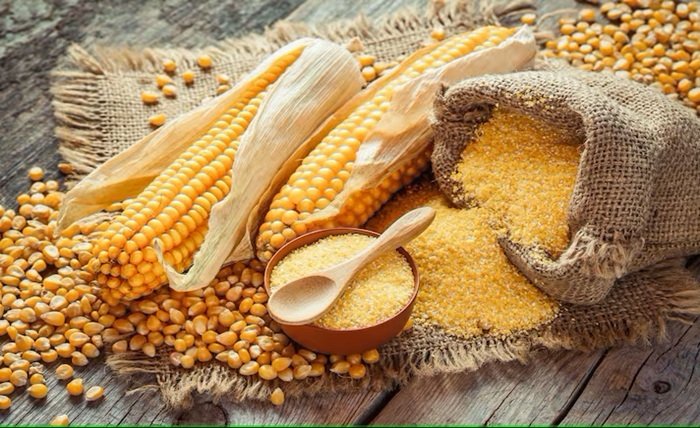Introduction
Corn flour is a versatile ingredient derived from corn kernels. It is finely ground, and its soft texture makes it an excellent option for thickening sauces, soups, and even baking. In recent years, corn flour has gained popularity due to its gluten-free nature, making it a go-to for individuals with gluten sensitivities. But what exactly is corn flour, and how can it benefit your health? In this article, we will dive deep into the uses, benefits, and other essential facts about corn flour.
What is Corn Flour?
Corn flour is produced by grinding the kernels of corn into a fine powder. Unlike cornmeal, which has a coarser texture, corn flour is finely milled and is white or pale yellow in color. It is a staple ingredient in many cuisines, particularly in Latin American, Indian, and Asian recipes. Corn flour can be used as a thickening agent, in baking, or even as a substitute for other flours in various gluten-free recipes.
One of the key features of corn flour is that it is made entirely from corn, which means it retains much of the nutritional value present in the whole grain. This flour can be used for making tortillas, fritters, or as an ingredient in soups and gravies. The high starch content in corn flour makes it an ideal choice for many culinary applications.
Types of Corn Flour
There are different types of corn flour available in the market, and it’s essential to know which type best suits your needs. The two most common types are:
Cornstarch: Often used as a thickening agent for sauces, puddings, and soups.
Cornmeal Flour: Made from ground corn kernels, this type is slightly coarser than regular corn flour and is used in a variety of baked goods like cornbread.
While these two types differ in texture, both are excellent sources of carbohydrates and provide energy. However, cornstarch is often preferred for its fine texture and ability to create smooth, silky sauces and gravies, while cornmeal flour is often used for more textured recipes.
Benefits of Corn Flour
There are numerous health benefits to incorporating corn flour into your diet. One of the most significant advantages of corn flour is its gluten-free nature, which makes it an excellent alternative to wheat flour for people who have gluten sensitivity or celiac disease.
Rich in Fiber: Corn flour contains fiber, which is essential for maintaining digestive health. Fiber helps regulate bowel movements and prevent constipation.
High in Nutrients: Corn flour contains essential vitamins and minerals, including vitamin B6, folate, thiamine, and iron. These nutrients are vital for energy production and maintaining overall health.
Supports Heart Health: The high fiber content in corn flour has been shown to help reduce cholesterol levels, which can lead to better heart health.
As a gluten-free alternative, corn flour is also an excellent choice for people who need to avoid gluten. It can be easily incorporated into many gluten-free recipes, helping individuals enjoy foods they may have otherwise had to avoid.
How to Use Corn Flour in Cooking
Corn flour can be used in a wide variety of ways. From thickening soups and sauces to creating light and fluffy baked goods, the versatility of corn flour is undeniable. Below are some common uses of corn flour in cooking:
Thickening Agent: Corn flour is a popular choice for thickening sauces, gravies, soups, and puddings. It dissolves easily in liquid and creates a smooth texture without affecting the flavor of the dish.
Baking: In gluten-free baking, corn flour is often used to replace wheat flour. It can be used in combination with other gluten-free flours like rice flour or potato flour to make delicious cakes, cookies, and bread.
Coating: Corn flour can be used to coat vegetables or meat before frying, providing a crispy texture without the use of breadcrumbs.
It’s important to note that when using corn flour as a thickener, you should always mix it with cold liquid before adding it to hot foods to prevent clumping. This will ensure a smooth and even consistency in your dish.
Corn Flour vs Cornstarch: What’s the Difference?
Although often used interchangeably, corn flour and cornstarch are two distinct products with different applications. Corn flour, as mentioned earlier, is ground from the whole kernel, while cornstarch is derived from the starchy part of the corn kernel (the endosperm).
Corn Flour: Made from whole corn kernels and has a slightly grainy texture. It is ideal for gluten-free baking, thickening soups, and making batters.
Cornstarch: A fine, powdery substance primarily used as a thickening agent. It is best for thickening sauces, gravies, and puddings.
When baking, you should always use corn flour if the recipe calls for it, as cornstarch will not provide the same texture and structure. If you’re thickening a soup or sauce, both options work well, but cornstarch is often the preferred choice due to its ability to create a smoother finish.
How Corn Flour Affects Your Health
While corn flour is nutritious, it’s essential to consume it in moderation, especially if you’re following a weight management plan. Here’s a breakdown of how corn flour can affect your health:
Weight Management: Due to its high carbohydrate content, corn flour is a source of energy. However, it’s crucial to balance its consumption with protein and healthy fats to maintain a balanced diet.
Blood Sugar Levels: Corn flour has a high glycemic index, meaning it can cause a rapid increase in blood sugar levels. If you have diabetes or are monitoring your blood sugar levels, be mindful of your corn flour intake.
Allergy Considerations: While corn flour is gluten-free, it can still cause allergic reactions in some people who are sensitive to corn or its byproducts.
For most people, corn flour is a safe and nutritious option, but those with specific dietary restrictions or allergies should consult with a healthcare provider before making it a regular part of their diet.
Recipes You Can Make with Corn Flour
Corn flour is a versatile ingredient that can be incorporated into various recipes. Here are some delicious dishes you can make using corn flour:
Corn Flour Pancakes: Mix corn flour with eggs, milk, and a touch of sugar to create light and fluffy pancakes.
Corn Flour Fritters: Combine corn flour with water and seasoning to make a crispy batter. Dip vegetables or meat into the batter and deep fry until golden.
Corn Flour Chapati: A gluten-free version of traditional Indian flatbreads. Corn flour can be combined with water and a pinch of salt to make dough, which is then rolled into thin chapatis and cooked on a hot griddle.
Incorporating corn flour into your meals not only adds texture but also brings a delicious corn flavor that enhances the overall taste of the dishes.
Conclusion
Corn flour is an incredibly versatile and nutritious ingredient that has many uses in both sweet and savory dishes. Whether you are looking to thicken a sauce, bake gluten-free goods, or add a crispy coating to your fried foods, corn flour offers countless possibilities in the kitchen. Not only is it gluten-free, but it is also rich in fiber and essential nutrients that promote good health. While it is best to use it in moderation, corn flour can be an excellent addition to your diet and cooking repertoire.
FAQs
What is the difference between corn flour and cornstarch?
Corn flour is made from the whole corn kernel, while cornstarch is derived from the starchy part of the kernel. Corn flour is used for baking and thickening, while cornstarch is typically used as a thickening agent.
Can I use corn flour for gluten-free baking?
Yes, corn flour is an excellent option for gluten-free baking. It can be used on its own or combined with other gluten-free flours to make bread, cakes, and cookies.
Is corn flour good for weight loss?
While corn flour is a good source of carbohydrates and energy, it should be consumed in moderation. Pairing it with proteins and healthy fats is key to maintaining a balanced diet.
How do I use corn flour as a thickening agent?
To use corn flour as a thickener, mix it with cold liquid before adding it to your hot dish. This prevents clumping and ensures a smooth texture.
Can corn flour be used to make tortillas?
Yes, corn flour can be used to make gluten-free tortillas. It is a key ingredient in many traditional Mexican recipes for making soft and delicious tortillas.











